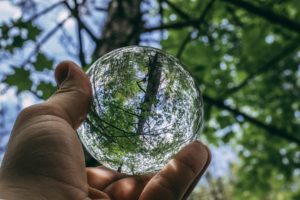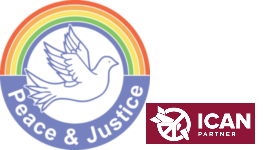By Hsiao-Wei Chen
In Mozambique, 19 percent of the country’s territory (15 million hectares) was under negotiation with a British company for its potential carbon stock that can be traded in the prevailing carbon markets. In Madagascar, the Corridor Ankeniheny-Zahamena REDD project was investigated for restricting villagers from using the forest where they grew food and gained natural resources. In Liberia in 2008, a UK-based Carbon Harvesting Corporation was interested in buying 400,000 hectares of rainforest.
As global warming is increasing since Anthropocene, extreme weather and natural disasters can be seen in the very corner of the world. In some parts of the world, unusual weather is witnessed every few years. Areas where it is not supposed to rain in some time of the year are flooding and areas where it is not usually sunny are having droughts. The planetary-scale changes in the Earth system are believed to be the main reasons of climate change, and since human society is included in the Earth system, large scale changes in society can also lead to intense global change. The impact of climate change is becoming obvious for human beings and especially serious for other creatures. Animals are losing their habitats directly because of human activities, such as industrial pollution, logging, deforestation, or indirectly because of global warming and extreme weather, which are also results of human activities. It is not surprising that there is a great decrease in biodiversity. Furthermore, natural resources are also becoming scarce due to large-scale extracting and climate changing. Sustainable development therefore has become a critical goal for human society.
Green economy has been largely promoted since the United Nations Conference on Sustainable Development, also known as the Rio+20 Conference in 2012. There are three aspects of Sustainable Development: Economic, Environment, and Social. To promote sustainable development, green economy is proposed as a means to achieve a resilient economy that is environmentally friendly – “low carbon, resource efficient and socially inclusive”. The United Nations Environment Programme Green Economy Report in 2011 has emphasised the importance of fairness while applying green economy. “To be green, an economy must not only be efficient, but also fair. Fairness implies recognising global and country level equity dimensions, particularly in assuring a just transition to an economy that is low-carbon, resource efficient, and socially inclusive.’’ Nevertheless, there is the dark side of green economy. Some scientists argue that green economy is creating green grabs and at the same time postponing real solutions for climate change. Green Grabbing was a term created by John Vidal, a Guardian journalist, and later used by James Fairhead, Melissa Leach and Ian Scoones in their article “Green Grabbing: a new appropriation of nature”. They suggested that ecosystems are put up for sale and that selling nature is no way to save it. Green grabbing can be just another form of land grabbing but legitimated by the claim of protecting the environment. Isn’t this another way of colonialism—and this time—eco-colonialism?
 Conservation is getting easier, and even easier if you have money. Hundreds of trusts, charities, and individuals are buying beautiful mountains, forests, fields and lands to save it from destruction and encourage others to buy the environment too. It could be a whole acre of elephant corridor, 50 acres of the Amazon rainforest or 1000 acres of a woodland that is rich in carbon storage. These areas are bought to be protected areas, for instance, national parks or natural reserves. Sometimes they can be also explored for food or fuel that are “green”. In the developed world, these conservationists are fairly welcomed by the governments because they help them maintain or increase the market price of the land. But it is much more complicated than market price in most developing countries, especially in rural areas, where they are displacing indigenous people, who are marginalised from the nearby community, and even threatening the countries’ sovereignties. Such consequences are definitely not written on the Sustainable Development Goals.
Conservation is getting easier, and even easier if you have money. Hundreds of trusts, charities, and individuals are buying beautiful mountains, forests, fields and lands to save it from destruction and encourage others to buy the environment too. It could be a whole acre of elephant corridor, 50 acres of the Amazon rainforest or 1000 acres of a woodland that is rich in carbon storage. These areas are bought to be protected areas, for instance, national parks or natural reserves. Sometimes they can be also explored for food or fuel that are “green”. In the developed world, these conservationists are fairly welcomed by the governments because they help them maintain or increase the market price of the land. But it is much more complicated than market price in most developing countries, especially in rural areas, where they are displacing indigenous people, who are marginalised from the nearby community, and even threatening the countries’ sovereignties. Such consequences are definitely not written on the Sustainable Development Goals.
“Click! I have just bought 10 sq cm of rainforest for a few pennies on the net. Click click! That’s 0.2 sq ft of Patagonia coastline saved from mining. Click click click! A friend has just given me as a present 1 sq m of the Palmyra atoll, wherever that is.” — John Vidal

